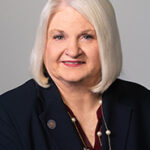

Florida took a step toward opening its distressed property insurance market to more carriers Tuesday when a Senate committee approved a bill that would let Florida-based surplus lines insurers sell surplus policies in Florida.
The Senate Banking and Insurance Committee also passed measures that would add stiffer penalties for some actions by public adjusters; would for the first time in years allow higher workers’ compensation reimbursement for physicians; and would add new requirements regarding insolvent insurance companies.
Senate Bill 1402, offered by Sen. Danny Burgess, R-Zephyrhills, would end the requirement that surplus lines carriers cannot be domiciled in Florida. If approved by the full Legislature and signed by the governor, the bill would allow many more carriers to write hard-to-place properties, but those companies would not be considered admitted carriers and would not be subject to state regulators’ review on rates.

The surplus carriers also would not be backed by the Florida Insurance Guaranty Association if they become insolvent, potentially exposing policyholders to significant losses. Consumers would have to be informed of that when they purchase a surplus policy, the bill states.
“I definitely think that we need more options on insurance, and this is a really good bill,” said committee member, Sen. Linda Stewart, D-Orlando.
George Feijoo, a lobbyist who represents FCCI Insurance Group, a commercial carrier, argued that the bill would do little to fix the homeowners insurance crisis in Florida but would have other benefits. Under existing Florida law, if a surplus lines company wants to write in Florida, it must incorporate and be domiciled in another state. That practice is cumbersome to insurers. SB 1402 would also mean that domestic surplus lines would be regulated by Florida’s financial solvency laws, instead of those of other states, Feijoo said.
Burgess said at the meeting that he is still trying to understand why current Florida law is set that way, but he noted that 21 other states have passed similar measures that ease the restriction.
“Allowing domestic insurers to become eligible to transact surplus lines insurance may increase the number of property insurance policies written by surplus lines insurers,” a legislative staff analysis of the bill explained.
A similar bill is in the House, HB 951, by Rep. Tommy Gregory, R-Sarasota.
The committee, a key stop in the legislative process for insurance-related bills, also approved SB 1430, also sponsored by Burgess. The bill would make a number of technical changes to insolvency rules, including allowing insurers to make advance assessment payments to the Florida Insurance Guaranty Association, in quarterly installments.

It also would require that the workers’ compensation rate-making organization for Florida, the National Council on Compensation Insurance, to include insolvent comp insurers’ loss experience data when recommending rates.
An amendment offered by Sen. Jeff Brandes, R-St. Petersburg, would also allow officers and directors of insolvent insurance companies to later be named officers or board members of other insurers, unless the Florida Office of Insurance Regulation finds that they had contributed to or caused the insolvency. The amendment and the bill passed the committee.
Brandes withdrew an amendment that would have required a post-mortem analysis on all insurers that go belly-up. He noted that when airplanes crash, the incident is subject to intense scrutiny by regulators. But when insurance carriers crash, no one examines the reasons. The concern Tuesday was which agency would be best suited to conduct the analysis.
The committee passed two other bills Tuesday. SB 1292, by Sen. Joe Gruters, R-Sarasota, would give regulators new powers to investigate and penalize errant insurers and public adjusters.
The bill would double financial penalties for adjusters who engage in deceptive practices during a state of emergency. And although the state Department of Financial Services already has subpoena power in some investigations, the bill would allow the department to fine insurers $2,000 per day when they fail to comply with investigations.
SB 1274 would ratify higher reimbursement rates for physicians and others who treat injured workers. The Florida Division of Workers’ Compensation and its reimbursement review group, known as the Three-Member Panel, have approved new reimbursement manuals in each of the past several years. But state law requires legislative review of any rule or regulation that would cost businesses above a certain amount.
Since 2016, lawmakers have declined to act on the improved reimbursements, leaving Florida workers’ comp doctors some of the lowest-paid in the nation, studies have shown. SB 1274, by Sen. Doug Broxson, R-Pensacola, passed the committee 9-0.
The much-anticipated property insurance bill that would tweak reforms started in 2019 and in 2021, is SB 1728, by Sen. Jim Boyd, R-Bradenton, chairman of the committee. That bill did not make it on the committee’s agenda for Tuesday, however, because it was filed late, just before the deadline last week, a Boyd staff member said.